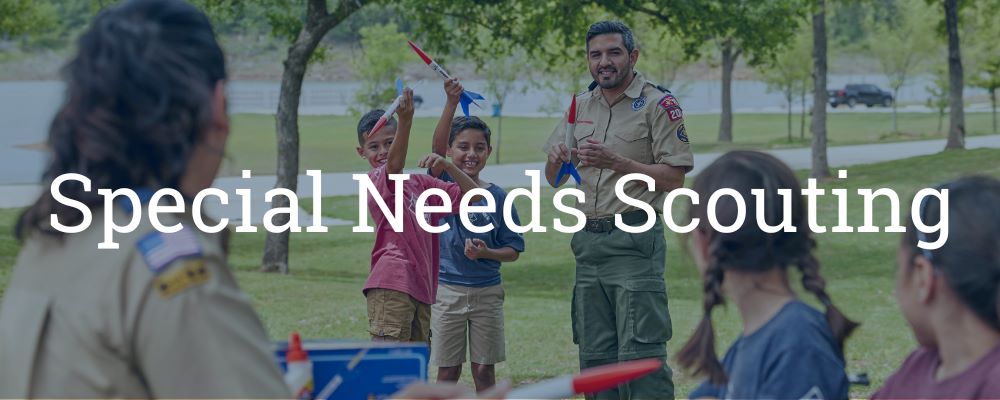The following are the guidelines for membership and advancement in Scouting for persons having disabilities or other special needs.
The Americans with Disabilities Act of 1990 (ADA) provides the following definition of an individual with a disability:
“An individual is considered to have a ‘disability’ if s/he has a physical or mental impairment that substantially limits one or more major life activities (e.g., . . .seeing, hearing, speaking, walking, breathing, performing manual tasks, learning, caring for oneself, and working), has a record of such an impairment, or is regarded as having such an impairment.
“An individual with epilepsy, paralysis, HIV infection, AIDS, a substantial hearing or visual impairment, mental retardation, or a specific learning disability, is covered, but an individual with a minor, nonchronic condition of short duration, such as a sprain, broken limb, or the flu would not be covered by the ADA.
“The ADA definition protects individuals with a record of a disability and would cover, for example, a person who has recovered from cancer or mental illness.
“The ADA protects individuals who are regarded as having a substantially limiting impairment, even though they may not have such an impairment. For example . . . a qualified individual with a severe facial disfigurement is protected from being denied employment because an employer feared the ‘negative reactions’ of customers or co-workers.”
The Department of Education identifies a severely handicapped child as one who, because of the intensity of his physical, mental, or emotional problems, or a combination of such problems, needs education, social, psychological, and medical services beyond those that have been offered by traditional regular and special educational programs, to maximize his full potential for useful and meaningful participation in society and for self-fulfillment. Such children include those classified as seriously emotionally disturbed or profoundly and severely mentally retarded, and those with two or more serious handicapping conditions, such as the mentally retarded blind, and the cerebral-palsied deaf.
Alternate Requirements for Scout, Tenderfoot, Second Class, and First Class Ranks
Alternate Merit Badges for the Eagle Scout Rank
Special Needs Scouting Service Award
Guide to Working With Scouts With Special Needs and Disabilities

